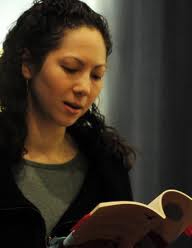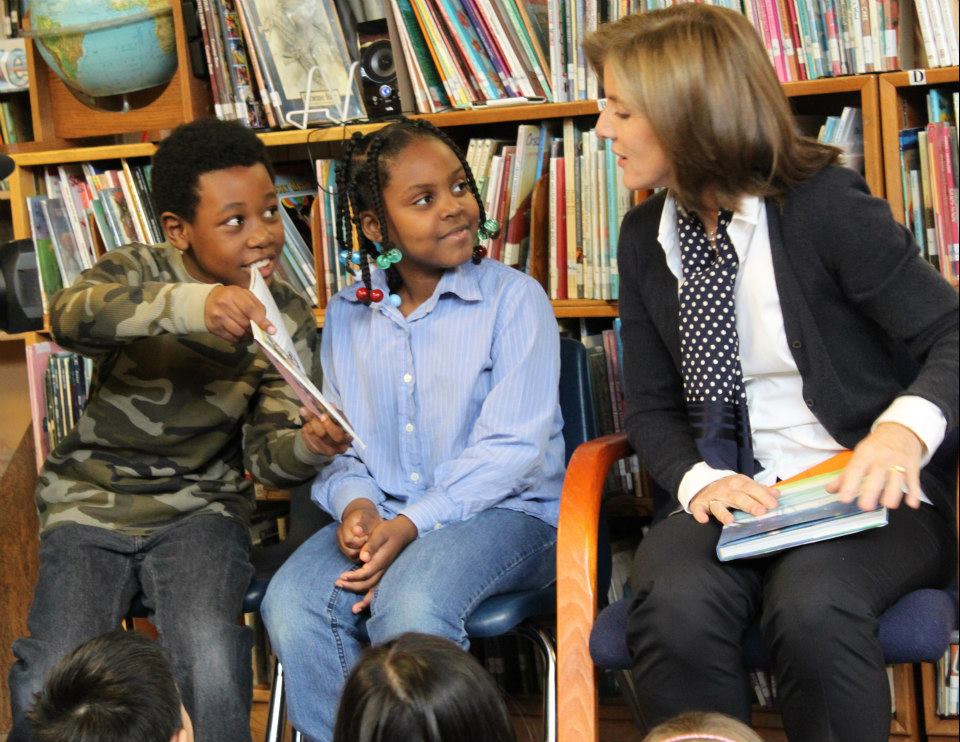The Official Word is out!
ELIZABETH AUSTEN NAMED 2014-16 WASHINGTON STATE POET LAUREATE
SEATTLE-BASED POET, COMMENTATOR AND EDUCATOR TO ASSUME THE POST ON FEB.1

OLYMPIA —Elizabeth Austen has been appointed the 2014-16 Washington State Poet Laureate, effective Feb. 1. Austen, a Seattle resident, will be the state’s third poet laureate. Her appointment is sponsored by Humanities Washington and the Washington State Arts Commission (ArtsWA), with the support of Gov. Jay Inslee.
Austen will give her first reading as poet laureate with the 2012-14 Washington State Poet Laureate, Kathleen Flenniken, at Open Books in Seattle Feb. 16. (See below for details.)
As the poet laureate, Austen will build awareness and appreciation of poetry — including the state’s legacy of poetry — through public readings, workshops, lectures and presentations in communities, schools, colleges, universities and other public settings in geographically diverse areas of the state. Austen succeeds the 2012-2014 Washington State Poet Laureate, Kathleen Flenniken.
“We are thrilled with Elizabeth’s appointment as our next Washington State Poet Laureate. She will be an outstanding ambassador for poetry in our state and inspires a deep appreciation for the art in Washingtonians of all ages,” said ArtsWA Executive Director Kris Tucker.
In this role, Austen will serve a two-year term as the primary spokesperson, supporter and promoter of poetry in Washington. She will receive a stipend of $10,000 per year to help cover the cost of providing poetry programs and activities statewide.
“My aim is always to provide a frame that helps the listener ‘step into’ a poem,” said Austen. “I hope to reach people – even people who think they don’t like poetry – by sharing works that are both vivid and relatable.”
Austen is the author of a collection, Every Dress a Decision (Blue Begonia Press, 2011), and two chapbooks, The Girl Who Goes Alone (Floating Bridge Press, 2010) and Where Currents Meet (Toadlily Press, 2010). She produces literary programming for KUOW radio, a Seattle NPR affiliate, and is a communications specialist and educator at Seattle Children’s Hospital.
Austen moved to Washington in 1989, at the time a stage actor, avid hiker and occasional writer of poetry. After a transformative trip to the Andes region in her early 30s, Austen focused her efforts on poetry. Her work trends towards the personal, touching on issues such as women’s societal roles, courage and searching for spirituality.
“Elizabeth’s talent and her experience curating the works of local poets will enable her to step immediately into the role of Washington’s poetry ambassador to the general public.” said Julie Ziegler, Humanities Washington’s executive director. “She is a natural teacher, a skilled poet and is committed to sharing the power of poetry.”
EVENT DETAILS
What: The Passing of the Laurel: A Reading with Elizabeth Austen & Kathleen Flenniken
When: Feb. 16, 2014 at 3 p.m.
Where: Open Books: A Poem Emporium, 2414 N 45th St, Seattle, WA 98103
Cost: Free
On the Web: Humanities Washington’s events calendar [Details] or http://bit.ly/1lk5xyF
Questions? Contact Abby Rhinehart at abby@humanities.org or (206) 682-1770 x108
ABOUT THE WASHINGTON STATE POET LAUREATE
The Washington State Poet Laureate program is sponsored by Humanities Washington and ArtsWA and funded by the National Endowment for the Arts and the National Endowment for the Humanities. In April 2007, the Washington State Legislature passed a bill that established the Washington State Poet Laureate position and recognized the value of poetry to the culture and heritage of the state. Kathleen Flenniken served as the Washington State Poet Laureate for a two-year term beginning January 2012; Sam Green served as the first Washington State Poet Laureate from 2008-10. More about the activities of the Washington State Poet Laureate can be found on the Humanities Washington website.
ABOUT ARTSWA
Established in 1961, ArtsWA collaborates with artists and arts organizations statewide to conserve, promote and develop artistic resources. For more about ArtsWA, visit arts.wa.gov.
ABOUT HUMANITIES WASHINGTON
Celebrating its 40th anniversary of serving the state this year, Humanities Washington sparks conversation and critical thinking using story as a catalyst, nurturing thoughtful and engaged communities across our state. Through a wide network of partner organizations, Humanities Washington serves more than 500,000 Washingtonians each year with speakers, reading and discussion programs, traveling exhibits, grant support and more. For more about Humanities Washington, including a calendar of upcoming events, visit humanities.org
And a little personal word: I am delighted that Elizabeth Austen is taking over this role, which has been the most exciting and gratifying of my working life. She is so beautifully equipped to take the job in new directions to an ever-growing state-wide audience. Elizabeth is a wonderfully accomplished poet. For years she has demonstrated her gift for building an audience for poets and poetry. It’s only fitting that she should carry on her excellent work in this very visible and official capacity.
Congratulations, Elizabeth! You’re going to be amazing.



